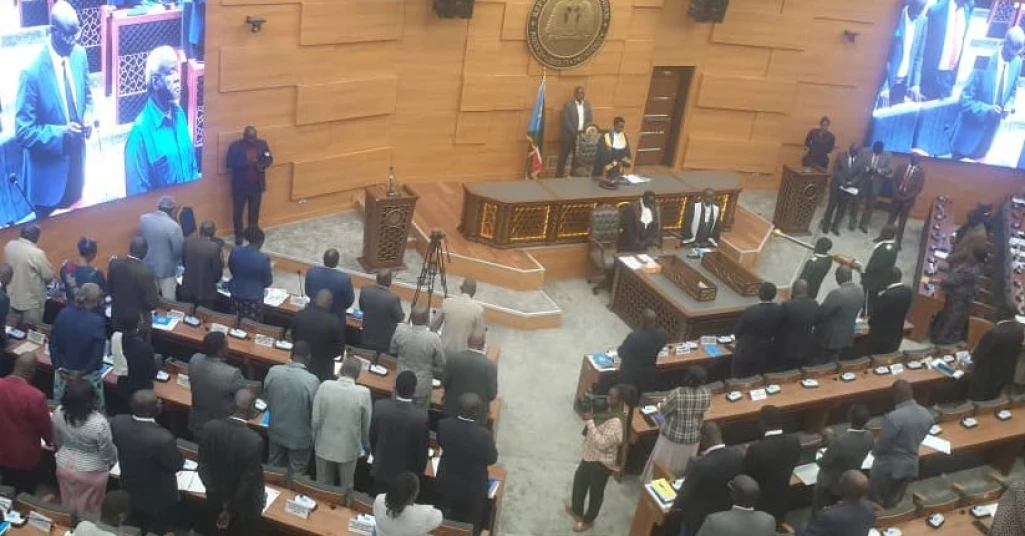
The parliamentary committee on Finance and Planning on Monday tabled the Public Financial Management and Accountability
Act 2011 (Amendment) Bill, 2024, before the House for its second reading.
This amendment bill aims to promote prudent, transparent,
and accountable management of national wealth and resources, the rule of law,
and constitutional and democratic governance in the Republic of South Sudan.
Hon. Changkuoth Bichiock Reth, the committee chairperson,
stated that the Ministry of Finance and Planning must adhere to the budget
timeframe once the bill passes into law.
“Following approval of the Council of Ministers, the
Ministry shall not later than January 31 of the same financial year issue all
government spending agencies with their final budget ceilings along with
instructions for preparing their detailed budget estimates,” Hon. Bichiock
said.
He stressed that on September 15, each year, the minister
is to prepare and present to the Council of Ministers a Budget Review and
Outlook Paper (BROP). After 14 days of submission, the Council shall then
consider approving the BROP with or without amendment.
The committee recommends that the minister submit the
paper (BROP) to the Budget Committee of Finance and Economic Planning to be
laid before the Assembly within seven days.
It states that the minister is to publish and publicize
the paper (BROP) not later than fifteen days.
Meanwhile, Hon. Goc Makuach, a lawmaker representing Twic
County, expressed optimism that the amendment would solve the issue of
mismanagement of resources.
“Once this act is amended, it will promote the prudent
management of our resources. The country is very much involved in so many
problems resulting from the management of resources,” Hon. Makuach explained.
“The bill talks about the timeline for the budget frame.
The countries for EAC have their timelines for the budget. I'm wondering why we
are not honoring what we have agreed to go with, so I need us in the August
house to consider this issue of timeline.”
He also stated that loans discussed by the ministry of
finance must pass through parliament.
In April 2024, a leaked document showed that South Sudan
has agreed with a United Arab Emirates firm to lend the country about $12.9 billion
in exchange for crude oil payment in the next 20 years.
The agreement, seen in a report by the UN Security
Council's panel of experts, was first published by the Bloomberg news agency,
but it is yet to be officially released to the public.
Negotiated on the sidelines of the COP28 Summit in Dubai
2023, the deal is said to be nearly double the GDP of South Sudan and about
five times the country's current external debt of $2.5 billion.
“The issue of borrowing people talked of is very
important. The law is very clear; whatever loan being discussed by the Ministry
of Finance must come to the Parliament. If it doesn't come to the parliament,
it is a crime punishable by law,” he warned.
For his part, an MP representing the Sudan African
National Union (SANU) party, said the amendment mandates the Ministry to make
all payments through bank transfer.
“We have issues with money sent to our embassies. Some
money, instead of being transferred through the bank, is taken as cash, and
sometimes that money doesn't reach the destination where it's going,” Hon. Bol
Tobi Maduet Tobi asserted.
“Funds transfers should be done through the bank so that
when the audit comes, they will find a trace of where the money came from and
where the money went.”